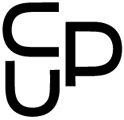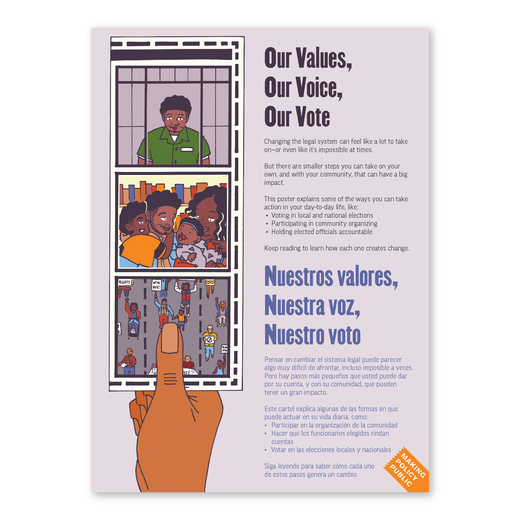 Our Values, Our Voice, Our Vote
Our Values, Our Voice, Our Vote
Today in New York State, people who are incarcerated don’t have the right to vote. Additionally, the friends and family of people who are incarcerated, along with formerly incarcerated people themselves, are often least likely to engage civically through voting or organizing. There are many barriers to understanding how their vote can matter, or which elected officials create policies on criminal justice, which leads to a lack of representation on the issues that deeply impact them.
CUP teamed up with the Alliance of Families for Justice and designers Karl Orozco and Tahnee Pantig to create a fold-out poster called Our Values, Our Voice, Our Vote! This poster explains and illustrates how family members of people who are incarcerated and formerly incarcerated people can have an impact on criminal justice reform and ultimately end mass incarceration through voting and other forms of civic engagement. The guide breaks down decision makers at different levels of government and shares other tools to engage civically, such as voting and community organizing. With this information, those most affected by mass incarceration will be able to play a more active role in determining policies that affect them and their loved ones.
- 8 × 11 color pamphlet; unfolds to 22″ × 32″ poster
- $8.00






















